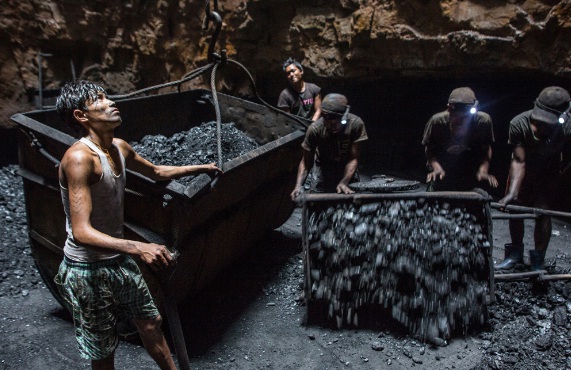

Not a Good Colour For German Image
Indigenous people of Meghalaya must be protected from illegal mining and the pollution it causes, the Supreme Court ruled, providing a ‘historic’ victory to tribal groups fighting for better rights over land and natural resources. They have full rights over the land and any resources on it, and only they can grant permission for mining after the correct permits are obtained, the Supreme Court added.
The Meghalaya government had “entirely failed to stop illegal mining, which is the cause of degradation and pollution”, and must end illegal mining and rehabilitate the environment, it said in its ruling.
The heavily forested state of Meghalaya has substantial reserves of minerals such as coal, limestone and uranium. At its peak, the state produced coal worth $4 billion a year, or about a tenth of India’s total production.


On April 17, 2014 the National Green Tribunal had banned coal mining in the ecologically sensitive areas of Meghalaya after the Assam-based all Dimasa Student’s Union and Dima Hasao district committee filed a petition, stating the acidic discharge from unscientific coal mines in Meghalaya are polluting Kopili river downstream.
The Apex court also said that the allegations of the environmental degradation by illegal and unregulated coal mining were fully proved from the materials on record, including the report of experts, report of Meghalaya state pollution control board and the report of Katakey committee.
Illegal mining had made businessmen and corrupt officials wealthy, but “exacerbated socio-economic inequality, destroyed the environment, and devastated tribal communities,” said Colin Gonsalves, a lawyer for the indigenous groups that filed the legal challenge.
The Supreme Court judgment is “landmark and historic as it gives back the entire ownership to the people. This is the biggest victory,” he said in a statement.
To read the Court’s Ruling click here
1. The mandate for blending Compressed Biogas (CBG) with natural gas has come into effect…
Andhra Pradesh is striving towards greening its energy sector with quite some speed. In a…
With an objective to bolster India’s green energy goals, a Tripartite Agreement has been signed…
The Union MNRE Minister Pralhad Joshi launched the Green Hydrogen Certification Scheme of India (GHCI)…
India’s energy conglomerate Bharat Petroleum Corporation Limited (BPCL) has commissioned a 5MW green hydrogen plant…
In a historical development, the European Space Agency (ESA) has successfully launched its pioneering ‘Biomass’…